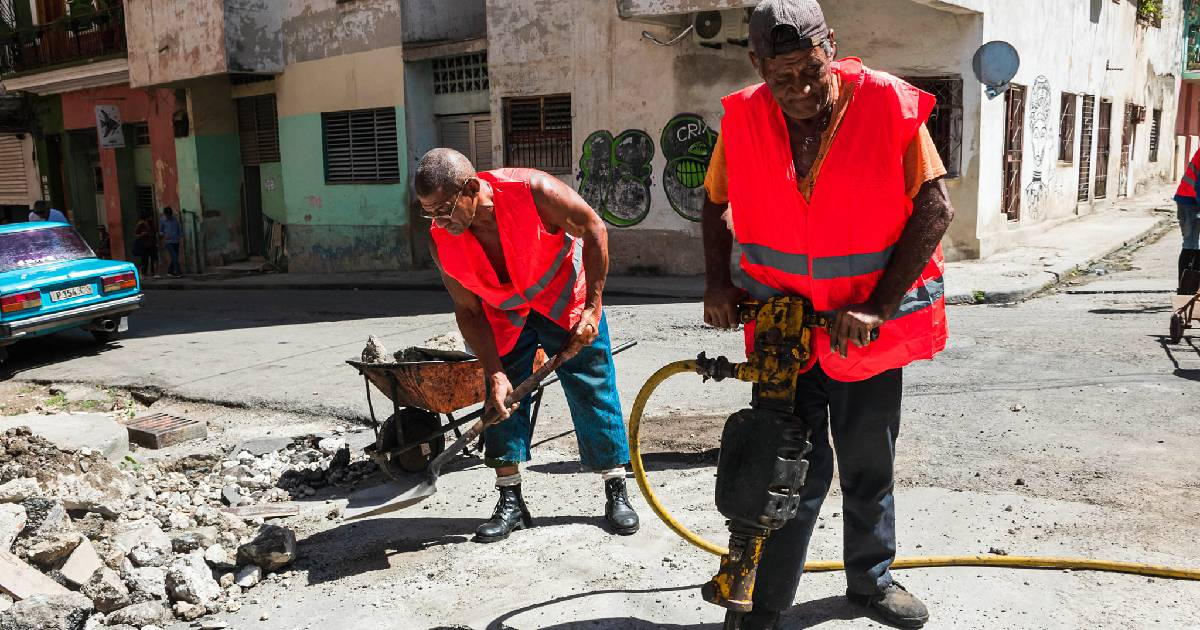Eduardo Rodríguez Dávila, Cuba's Minister of Transport, has acknowledged that the country's road recovery program faces serious challenges and that, despite efforts, the deterioration of the national road network has not been halted.
During a recent accountability session to the National Assembly, the minister pointed out that organizational issues in managing the national currency budget, insufficient convertible currency for acquiring equipment, fuel supply instability, and material shortages are the main causes of delays in the road recovery program.
According to the report presented, by the end of the first half of the year, progress was minimal, and the deterioration of the roads had not been contained.
Key Issues in Road Recovery Efforts
The report highlights that low production of Asphalt Concrete is a significant problem, with 12 out of 25 production plants currently halted due to breakdowns. The execution of the hot-mix asphalt plan stands at 10.04%, while the cold-mix plan is at 14.32%, the minister specified.
Rodríguez Dávila also admitted that asphalt mixing plans for airports, highways, and roads are far below targets. Specifically, the Moa-Baracoa road has seen no progress, he said.
Regarding road repairs and pothole elimination, he stated that only 22.3% of planned pothole repairs and 14.2% of hot-mix asphalt placement had been executed. Light and major bridge repairs are also significantly behind schedule.
To make matters worse, the minister noted that for embankment repairs to facilitate agriculture, the 2024 plan targets 1,511.70 km, but only 538.10 km have been achieved so far, with an execution rate of just 35%.
The inefficiency in state management and maintenance of roads has contributed to an increase in accidents due to poor road conditions, as recognized by Cuban authorities themselves.
The deteriorating condition of the roads has been a critical factor in several traffic accidents, endangering the lives of drivers and pedestrians. Last year, several motorcyclists died after falling into potholes in Havana, and just a few weeks ago, a cooperative truck overturned after hitting a pothole in Banes, Holguín, to name a few examples.
The lack of resources and disorganization in the execution of maintenance plans reflect poor management by the government. According to the minister, proposals are being analyzed to improve financial and material support for the program at the central government level. Projects with Marta Abreu University of Villa Clara and the University of Matanzas are being promoted for the use of alternative materials and solutions.
He also explained that proposals are being developed for the creation of this fund and the expansion of toll collection in tourist areas and airports.
Challenges and Solutions in Cuba's Road Recovery Program
The article highlights the significant issues facing Cuba's road recovery efforts and the government's proposed solutions. Below are some frequently asked questions and their answers regarding this critical topic.
What are the main challenges in Cuba's road recovery program?
The main challenges include lack of organization in budget management, insufficient convertible currency for equipment, fuel supply instability, and material shortages.
How has the poor state of roads affected traffic safety in Cuba?
The poor condition of roads has led to an increase in traffic accidents, posing serious risks to drivers and pedestrians. Numerous incidents, including fatalities, have been reported due to potholes and road deterioration.
What steps are being taken to improve the road recovery program?
Proposals are being analyzed to enhance financial and material support at the central government level. Collaborations with universities for alternative materials and solutions are also being promoted, along with the development of a funding plan and expanded toll collections in tourist areas and airports.
